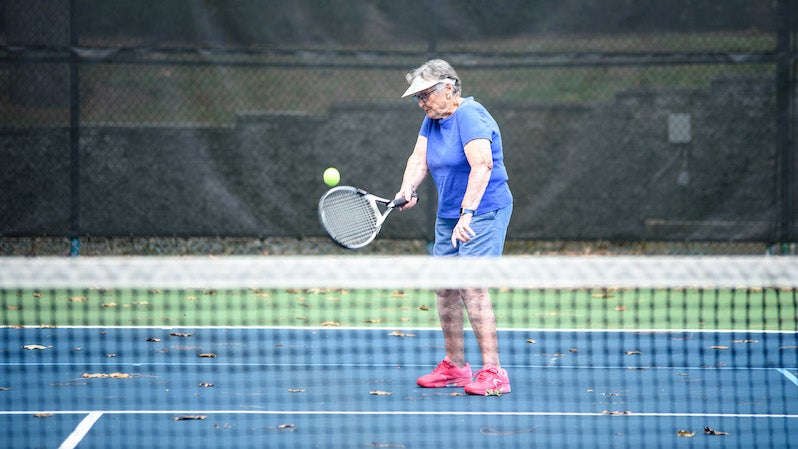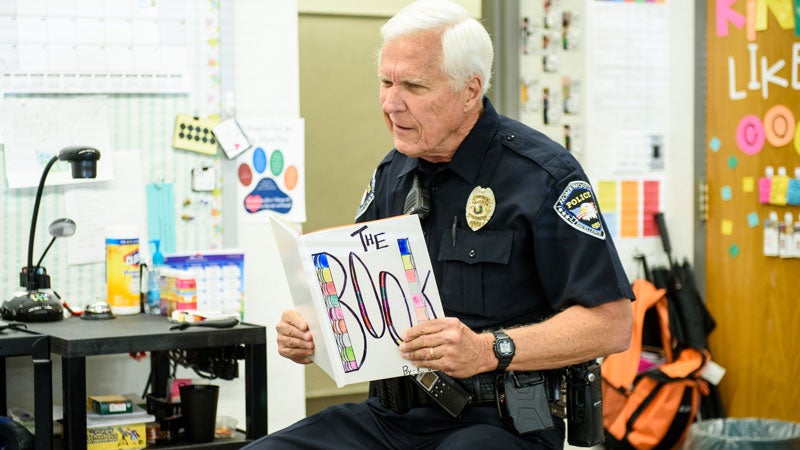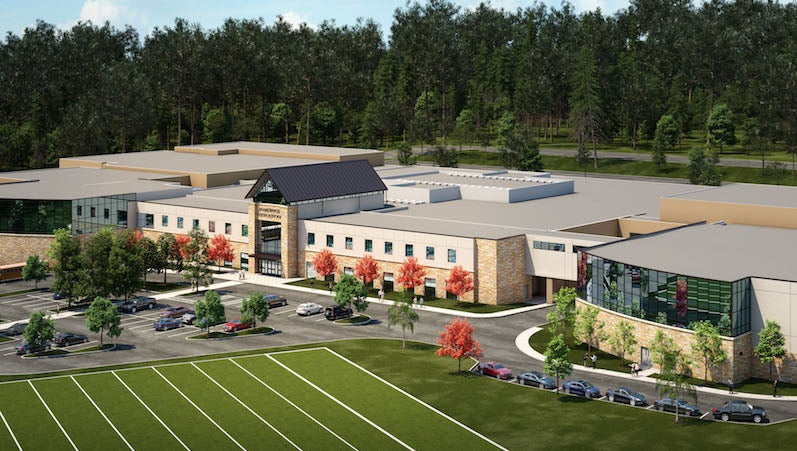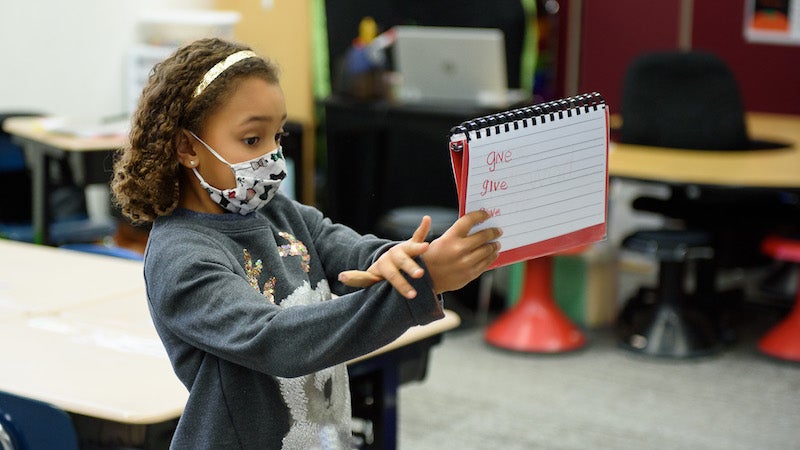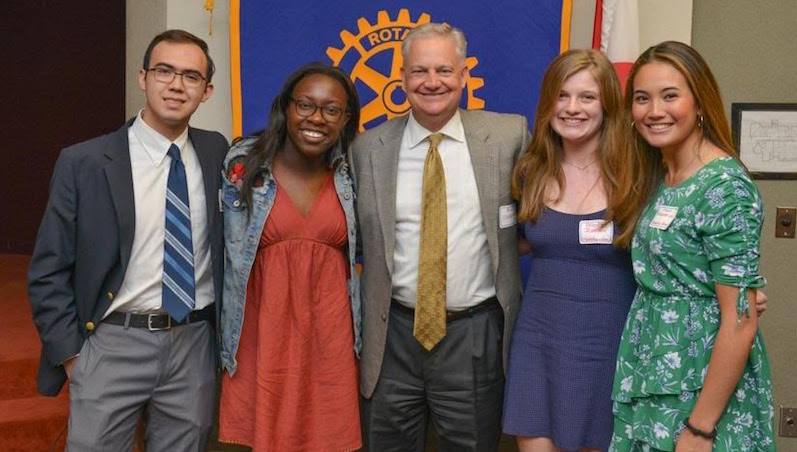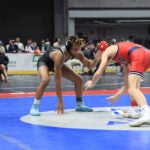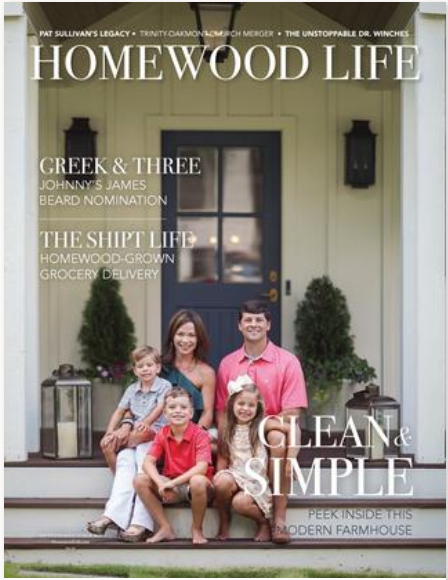By Solomon Crenshaw Jr.
Photos by Lindsey Culver
Harriet Cloud was about 10 years old when she took up tennis. She remembers playing everything in her small Kansas hometown, but she grew to like tennis best.
“I played in high school, but I was never on a team,” she recalls. “I just liked it better than any other sport so I just played. I grew up playing tennis, playing golf, doing swimming, just doing everything.”
At 97 years young, Harriet is still playing tennis. The Homewood resident says it’s a great sport, even though, by her own admission, she isn’t a great player. “There are those that are great, and then there are those who are just playing the game,” she says. “I’m certainly not one of the greats. I just play the game.” There’s another form of great she claims though, that of a great-grandmother of 13, and grandmother of 15.
The matriarch of her family is captain of her USTA team that plays out of Brook Highland Racquet Club, and she continues to pencil herself into the lineup. “Can anybody beat her? Yes, they can beat her,” says Sally Brown, a longtime friend who plays with and against Harriet. “You can put something right in front of her, and she can’t run to get it. But she’s a wonderful individual … just an amazing individual.”
Since 2002, Harriet has played on 58 USTA League teams, including the Golden Girls, Super Shots, Super Stars, Loblollies and Aces. Since 2013, she has cut her schedule down to only two seasons a year after playing on 44 teams in 11 years. You’ll find her at practice matches with her teammates on Mondays and with a 65 & Over Women’s 3.0 team on Wednesdays.
The USTA advised against playing tennis when society shut down. Harriet’s league, like others, shut down in March and resumed in June. Since then, Harriet has played at least once a week, torrid temperatures permitting. “I think it’s the humidity that just does you in,” she says. “The weather is really a factor for many people but particularly the older women because our games were supposed to be at 1:30 in the afternoon. That caused some problems, but I think most of us have done some rearranging so we did play in the morning.”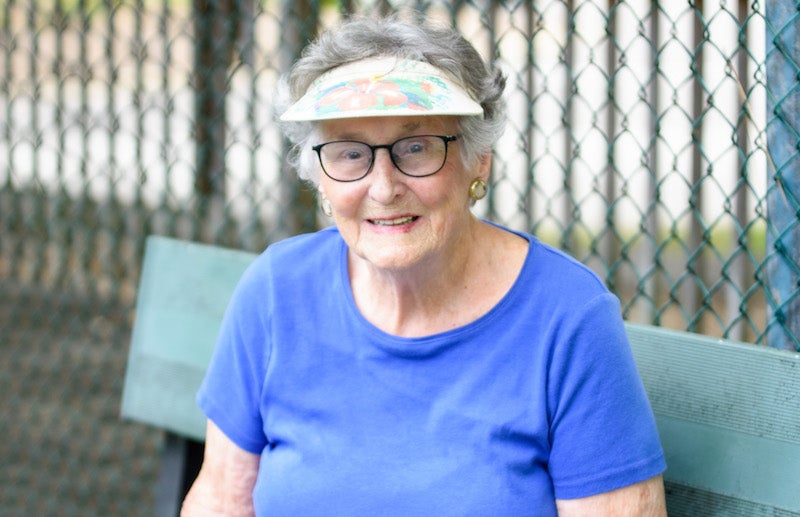
Harriet and her husband, Louis, were married for 60 years before he passed away in 2007. The couple played tennis at Homewood Park and West Homewood Park. To that union were born eight children. Two attended Homewood High, the rest John Carroll Catholic. They all played tennis. “Playing tennis is what we did a lot,” Harriet recalls. “We took our children out to play tennis and then later we were on some teams that they had in Birmingham.”
Growing up in Ellsworth, the county seat of Ellsworth County in Kansas, she and her family members played tennis for fun. Nobody was on a team; everybody just played. Her college days were spent at Kansas State University, a scant 103 miles up Interstate 70 from Ellsworth. Her tennis play was limited to intramurals as a member of Pi Beta Phi sorority. She went on to receive her master’s in nutrition at the University of Alabama and work with the University of Alabama at Birmingham’s Newborn Follow Up Clinic starting in 1977.
Around that time, she joined Ann Etheredge’s Working Women’s Tennis League at George Ward Park. “She’s just remarkable, especially to be able to play tennis all these years,” says the tennis pro, who recently retired from Pelham Racquet Club. “I’ve always been a fan of hers just because I just think she’s one of the nicest ladies.”
While it is not in place these days, Harriet would definitely qualify for the Working Women’s League today. She officially retired in 1998, but she’s still working on a part-time contract basis at a clinic for premature babies. She’s also a member of Our Lady of Sorrows Catholic Church, where she attends a Bible class every Thursday night.
Jeanna Jackson, the director of Clinical Nutrition at Children’s of Alabama hospital, says Harriet continues to impress off the court. “Everybody knows about Harriet in the nutrition world,” she says. “She’s inspirational. We all want to be that knowledgeable one day. She’s well respected in her profession.”
Harriet says she is trying to be very careful during the pandemic but admits she doesn’t stay home as much to some of her friends. She and her cohorts had worked from home until returning to the clinic on July 30.
Continuing to work “does make you get out of bed and it does keep you current on how to use a computer, and all media,” she says. “I’m trying to decide: Am I going to quit? Or am I just gonna die with my tennis racket in my hand? Or die with my boots on, as they say.”
She counts genetics among the reasons for her long life along with exercise, of course. After all, her mother was a month away from being 109 when she passed away. But Harriet’s left knee threatened to stop her tennis play. She was told she needed a knee replacement in her late 80s, but she didn’t want to go under general anesthesia. Today she works with a trainer once a week to help.
Harriet says her age does give her family some concern—she turns 98 in October after all. Two of her daughters—the better tennis players among her offspring—tell her she should stop playing, that she’s going to fall and hurt herself. But their mother is undaunted.
“I’m just kind of pitiful,” she says. “I cannot run well. I recognize that I’m not playing well. But I am having fun.”

